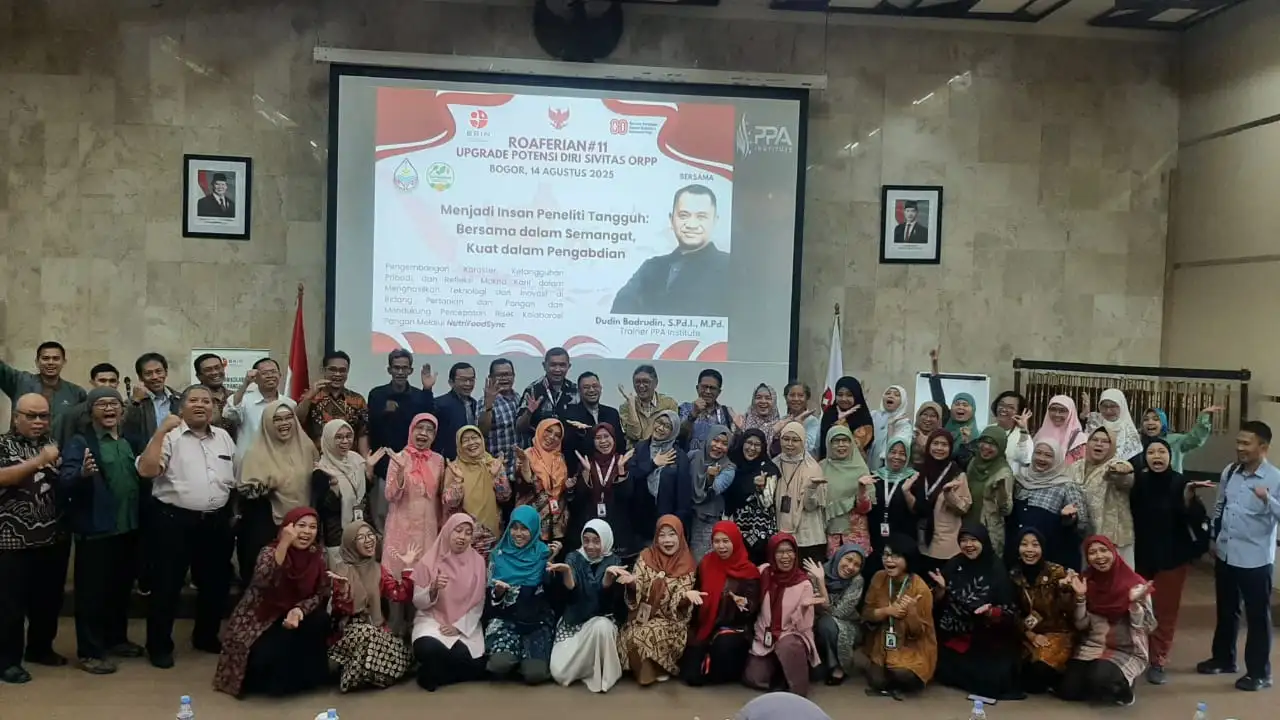Indonesia is entering a new era of agricultural innovation where food security, sustainability, and nutrition are increasingly linked to research and technology. The National Research and Innovation Agency (BRIN) has recently strengthened its focus on integrating smart agriculture Indonesia initiatives with the development of superfoods and alternative food resources. This strategic move is designed to address food challenges while ensuring that the agricultural sector remains competitive, productive, and aligned with global trends in sustainable farming.
By leveraging smart agriculture technologies and promoting superfoods, Indonesia is creating a framework that balances food innovation, environmental preservation, and farmer welfare. These developments signal a transformative approach that could redefine the country’s agricultural future.
The Role of BRIN in Advancing Smart Agriculture Indonesia
The National Research and Innovation Agency (BRIN) has emerged as the central driver of innovation in the agricultural sector. Through its latest programs, BRIN is spearheading efforts to integrate research on superfoods with smart agriculture Indonesia practices. The agency emphasizes the importance of applying precision farming, digital tools, and advanced biotechnology to improve crop yields while reducing environmental impacts.
According to BRIN’s researchers, the combination of smart farming systems and alternative food resources will help Indonesia face pressing global challenges such as climate change, population growth, and shifting dietary demands. For instance, precision agriculture tools allow farmers to use water, fertilizer, and energy more efficiently, while superfood development ensures higher nutritional value in local food sources.
The BRIN strategy is aligned with the country’s long-term vision of reducing dependence on imported food and achieving resilience in the face of global supply chain disruptions. By fostering research collaborations with universities, startups, and global institutions, BRIN is positioning Indonesia as a leader in both sustainable agriculture and food innovation.
Superfoods And Alternative Foods: A New Frontier For Indonesia
Superfoods such as moringa, sorghum, and seaweed are now at the forefront of Indonesia’s agricultural transformation. These crops are not only rich in nutrients but also well-suited to the country’s diverse climate and soil conditions. By developing these resources, BRIN aims to diversify local diets and provide affordable, nutrient-dense food for communities.
The adoption of smart agriculture Indonesia technologies allows these crops to be cultivated more effectively. For example, digital monitoring systems help farmers track soil conditions, while data-driven irrigation systems optimize water usage for crops like sorghum that thrive in semi-arid regions.
Alternative food sources also play a crucial role. Plant-based proteins, functional foods, and biofortified crops are gaining popularity as consumers become more health-conscious and aware of sustainability issues. With BRIN’s support, Indonesia is now exploring new ways to scale up production and integrate these innovations into the mainstream food system.
The goal is not just to create niche products for high-income consumers but to ensure that superfoods and alternative foods are accessible to all, including rural communities. By doing so, BRIN hopes to close nutritional gaps and improve public health outcomes nationwide.
The Economic Potential Of Smart Agriculture Indonesia
The economic implications of combining smart agriculture with superfood innovation are significant. According to BRIN projections, the adoption of precision farming technologies can increase productivity by up to 30 percent while cutting resource usage by nearly 20 percent. These efficiency gains can translate into higher incomes for farmers and reduced costs for consumers.
Moreover, the rise of smart agriculture Indonesia is attracting private investment and partnerships with international players. Startups focusing on agricultural technology are finding opportunities in areas such as farm automation, AI-driven crop management, and blockchain-based food traceability. These solutions are essential for building consumer trust in food quality and safety, both domestically and in export markets.
Superfoods also offer strong export potential. Indonesia has the opportunity to become a global supplier of moringa powder, seaweed-based products, and sorghum-based foods. By integrating superfood development with smart agriculture, the country could strengthen its agricultural trade balance and contribute to rural economic development.
Challenges And Future Directions
Despite these promising developments, challenges remain. Smallholder farmers, who make up the majority of Indonesia’s agricultural workforce, often face difficulties in accessing technology, financing, and training. Without adequate support, there is a risk that the benefits of smart farming and superfood development will be limited to large-scale producers.
To overcome this, BRIN and government partners are working to establish training programs, farmer cooperatives, and inclusive financing schemes. The success of smart agriculture Indonesia will depend on how well these initiatives bridge the digital divide and ensure equal access for all stakeholders.
Looking ahead, Indonesia must also strengthen its regulatory framework for alternative foods and invest in long-term R&D. Public-private partnerships, combined with community-based innovation, will be essential in scaling up these solutions nationwide.
If successful, Indonesia could become a model for integrating smart agriculture and superfood development in a way that balances sustainability, nutrition, and economic growth.
Conclusion
Indonesia is at a pivotal moment in its agricultural journey. By merging superfood innovation with smart agriculture Indonesia practices, the country is setting the stage for a more resilient, sustainable, and nutritious food future. BRIN’s leadership, combined with the involvement of farmers, startups, and international partners, ensures that this transformation is both scientifically grounded and economically viable.
The integration of technology, alternative foods, and inclusive policies has the potential to make Indonesia a regional leader in sustainable agriculture. For a nation rich in biodiversity and agricultural heritage, this pathway offers both a return to its roots and a bold step into the future.
Read More






 Saturday, 24-01-26
Saturday, 24-01-26







